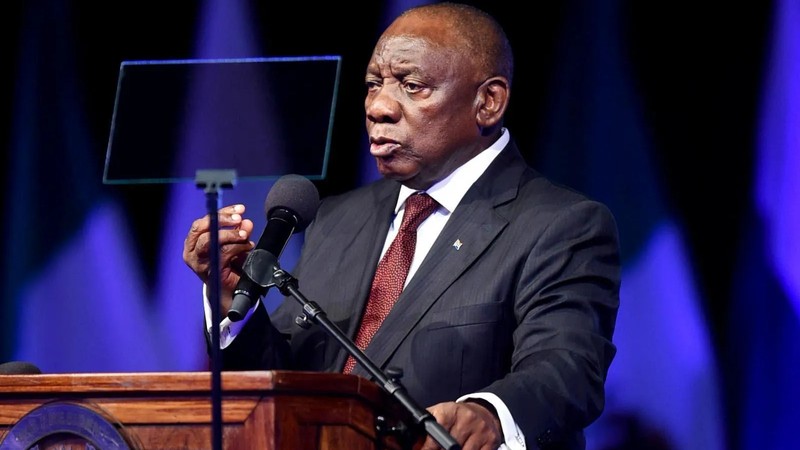The draft budget of more than R700 million for preparations for the National Dialogue has sparked anger amid concerns that it could just be another government-sponsored talk shop.
President Cyril Ramaphosa this week announced the eminent persons group for the National Dialogue, which is scheduled to be held on August 15.
Mduduzi Mbada, head of Deputy President Paul Mashatile’s office, said the preparatory task team has drafted a budget for the gathering to be presented to the ministerial committee.
“What we can say is that democracy is not cheap, building a nation is very costly,” he said.
Mbada said the R700m price tag included provinces and municipalities, and admitted that it was quite a lot of money.
The government also intends to use its existing infrastructure and programmes provided by Statistics South Africa and the Department of Home Affairs to cover some operational costs for the National Dialogue.
The R700m to be spent has irritated the trade union federation Cosatu, which described it as “ill-considered, rash and grossly insensitive to the frustrations of society”.
“Cosatu, like other sober-minded South Africans, was amazed that anyone could even suggest the dialogue should be allocated R700m. This rash estimate should be dismissed as a verbal gaffe and a reckless typo better left deleted and forgotten,” the federation stated.
According to Cosatu, the country has borne the brunt of the government’s brutal austerity budget cuts to frontline services, in particular, health, education, police and home affairs, among others, while also expected to tighten their belts in the midst of battling rising costs of living in a fragile economy saddled with unbearable levels of unemployment, poverty, and inequality.
The federation added that it was comforted by the fact that these are still draft proposals by officials and have yet to be costed, tabled, or approved by the government, let alone Parliament, and trusted the National Treasury to keep a hawk’s eye on the matter and ensure that a modest budget be allocated.
The EFF has described the R700m as outrageous and wasteful while South Africans are subjected to a brutal cost-of-living crisis, rising unemployment, and collapsing public services.
“It is, therefore, an insult to millions of South Africans, who are battling with food insecurity, load shedding, broken healthcare, and unaffordable education, that the same government would consider wasting close to a billion rand on elite talk shows while failing to deliver basic services,” the party observed.
The EFF is demanding full transparency and public disclosure of the budget for the dialogue and is considering legal action to halt what it called a “reckless allocation of public funds to a non-essential, unmandated vanity project”.
Former Cosatu general secretary Bheki Ntshalintshali, who is part of the 32-member eminent persons group, said many people and organisations have been calling or in support of the National Dialogue, and some believe it will be an opportunity to reflect on the journey travelled since 1994.
Ntshalintshali said it would also be an opportunity to engage on the challenges and opportunities that exist, priorities on the competing needs, and suggestions on what South Africans can do together in building the rainbow nation that they are envisaging, but more importantly, what strategies are needed to realise such a dream.
“So, challenges are known, but commitment by all is missing, so this is an opportunity for a social compact that has to be balanced. For workers, without being their spokesperson, this idea of a social impact is not new.
“There have been many social compacts agreed upon, others successful and others not, so they would share their experience and proposals and what needs to be done in an equitable and fair contribution,” he explained.
Academic head of the University of the Free State’s department of sociology, Professor Sethulego Matebesi, said the National Dialogue will be another public relations exercise that will not lead to tangible outcomes.
He said the National Dialogue is a great initiative that will enable South Africans to openly discuss how the country must navigate some of the most pressing challenges it faces.
Matebesi added that democracy was achieved through dialogue, but the country needs decisive leaders who can implement policies, fight crime, create job opportunities, combat corruption, and grow the economy.
“We have mortgaged ourselves to the false narrative that dialogue in itself will lead to tangible outcomes.
“For example, do we expect the forthcoming National Dialogue to deliver tangible outcomes where our politicians have failed to deliver basic services and implement the findings of several commissions of inquiries and a justice system, which is failing at every stage of the judicial process?” he asked.
Matebesi continued: “If we now have to institute a commission of inquiry to investigate the delays in the prosecution of Truth and Reconciliation Commission cases, where millions were spent, what will make the National Dialogue different?”
Professor Kedibone Phago, director of the North West University’s School of Governance, said among the challenges the dialogue will face is finding a way of protecting the discussions and outcomes from being disrupted or hijacked by nefarious elements within society.
“This is a necessary part since we have become a country of coalition government, and one disadvantage is that no one may take full ownership to protect this project and see it through,” he added.
Phago believes that the government will be required to implement the outcomes with clear targets.
“But we know that we have a huge challenge with dysfunctional institutions, which are often lacking in accountability, skills, and capacity. This is even prevalent at local government, where mostly unqualified people are occupying critical positions,” he said.
